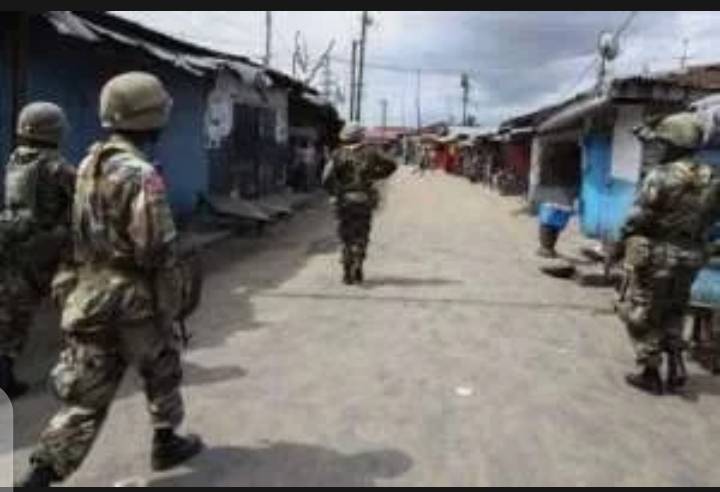Bawku Conflict: Examining Political Bias and Historical Injustices Against the Mamprusi
The conflict in Bawku, located in the Upper East Region of Ghana, has a complex history deeply intertwined with ethnic, political, and socio-economic factors. While the region is home to diverse ethnic groups such as the Kusasi, Mamprusi, Bissa, and others, tensions have often escalated between the Kusasi and the Mamprusi, leading to periodic outbreaks of violence, largely attributed to disputes over chieftaincy, land rights, and political representation. Understanding the historical injustices perceived by the Mamprusi and exploring alleged political biases is essential for an informed perspective on this enduring conflict.
Historical Context and Root Causes
The Bawku conflict traces its roots back to colonial times when British authorities recognized the Mamprusi as the ruling class over much of the northern part of the then-Gold Coast, including Bawku. This colonial endorsement was formalized through a series of treaties and appointments, solidifying Mamprusi dominance in the chieftaincy. However, as the region evolved, competing narratives emerged, particularly among the Kusasi, who contend that they were the original inhabitants of the Bawku area. As such, they believe they are entitled to the paramountcy of Bawku, which the colonial system overlooked.
Over the years, multiple events and developments have intensified this longstanding tension. Following Ghana's independence, government policies began recognizing Kusasi claims, specifically during the administrations of Kwame Nkrumah, who officially recognized a Kusasi chief in the 1950s. For the Mamprusi, this decision is often viewed as an act of political interference that disregarded their historical standing and legal chieftaincy, adding a sense of injustice that has endured over the decades.
Political Bias: Real or Perceived?
The Bawku conflict has often involved claims of political bias, with both the Mamprusi and Kusasi asserting that successive governments have taken sides in the chieftaincy dispute. Mamprusi leaders argue that certain governments have historically leaned towards the Kusasi, which they interpret as a means to weaken their traditional authority. They perceive this as an institutionalized bias that has systematically disenfranchised them in the chieftaincy and in political appointments in Bawku.
Political shifts in Ghana have often had a profound impact on the dynamics of the Bawku conflict. When a government aligns with a particular ethnic group, it influences local political appointments, law enforcement, and sometimes even land allocations. For the Mamprusi, these perceived biases exacerbate feelings of exclusion and marginalization, fueling a cycle of resentment and mistrust. The perception that the state supports one ethnic group over the other perpetuates tensions, undermining peace-building efforts.
Impact on the Mamprusi Community: Marginalization and Injustice
Mamprusi claims of marginalization in Bawku go beyond the chieftaincy issue, extending into other areas of governance, representation, and economic access. Mamprusi leaders argue that the system has increasingly limited their participation in decision-making processes, with fewer opportunities to hold key positions in the region's administrative and political landscape. Furthermore, instances of violence have led to displacement, disruption of livelihoods, and loss of property, leaving long-lasting scars on the community.
Efforts by the Mamprusi community to redress these grievances are often stymied by both political and cultural resistance, fostering a feeling of helplessness. Many believe that the system, intentionally or otherwise, has failed to protect their interests and has instead favored the Kusasi in various spheres. These perceptions of injustice contribute to a deeper-rooted anger, which sporadically manifests in violent confrontations.
The Role of Security and Governance
Attempts by successive governments to restore peace in Bawku have been met with mixed results. While initiatives have included dialogue, community engagement, and military intervention, allegations of partiality within these efforts persist. The Mamprusi community sometimes perceives the state security apparatus as biased, potentially overlooking incidents that adversely affect their community. Similarly, they feel that the local governance structures are dominated by opposing factions, creating an environment where the Mamprusi voice is often underrepresented.
The involvement of Regional Security Councils (REGSEC) has been critical in Bawku, but these councils often face the challenge of balancing impartial intervention with culturally sensitive conflict management. The perception of fairness in these operations is crucial; any suggestion of bias can swiftly erode trust, making peace-building efforts difficult to sustain. For the Mamprusi, a fair and transparent security approach is essential to overcoming decades of perceived injustices and ensuring a more balanced system that respects their historical status and cultural heritage.
The Path Forward: Dialogue, Reconciliation, and Inclusivity
Achieving lasting peace in Bawku requires acknowledging the legitimate grievances of all parties involved. For the Mamprusi, there is a strong desire for fair treatment, cultural respect, and political recognition. Government bodies, traditional councils, and civil society organizations must collaborate to ensure that all groups feel heard and respected. This involves fostering a transparent dialogue that addresses sensitive historical issues and promoting fair representation in local governance and security structures.
Reconciliation initiatives must go beyond symbolic gestures to include meaningful changes in governance, land allocation, and chieftaincy roles. Additionally, promoting inter-ethnic dialogue at community levels can build mutual trust and understanding, fostering a sense of unity among Bawku’s diverse ethnic groups. Without acknowledging and addressing the Mamprusi's sense of historical injustice and their claims of political bias, peace efforts may only serve as temporary solutions to a deeply rooted problem.
Conclusion
The Bawku conflict underscores the complex interplay between history, politics, and cultural identity. For the Mamprusi, the struggle for recognition and justice is not merely about power but also about reclaiming what they perceive as their rightful place within Bawku’s history. Addressing these concerns through inclusive governance and unbiased conflict resolution is vital for achieving a lasting peace. It is a challenging journey, but one that holds the promise of a more harmonious future for Bawku, where diverse communities can coexist with mutual respect and understanding.




No comments yet
Be the first to share your thoughts!